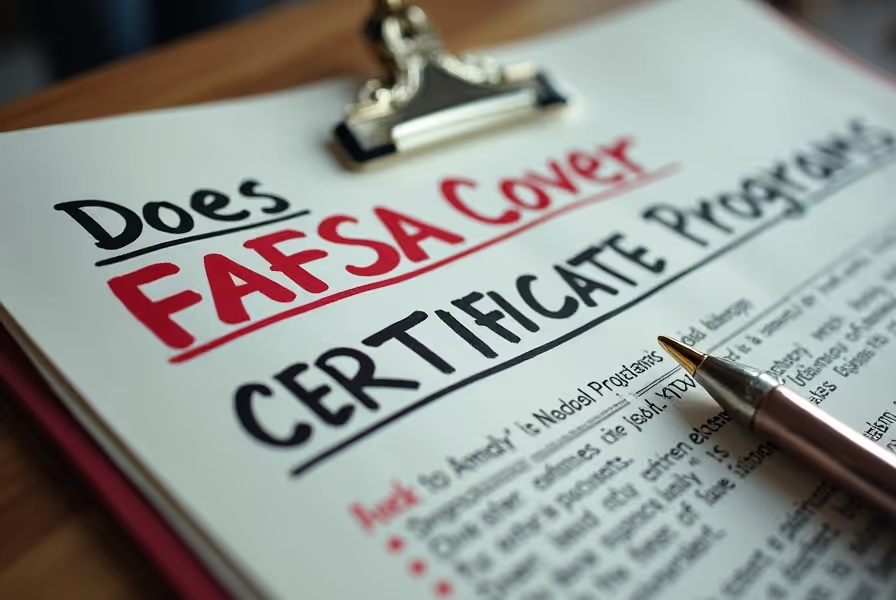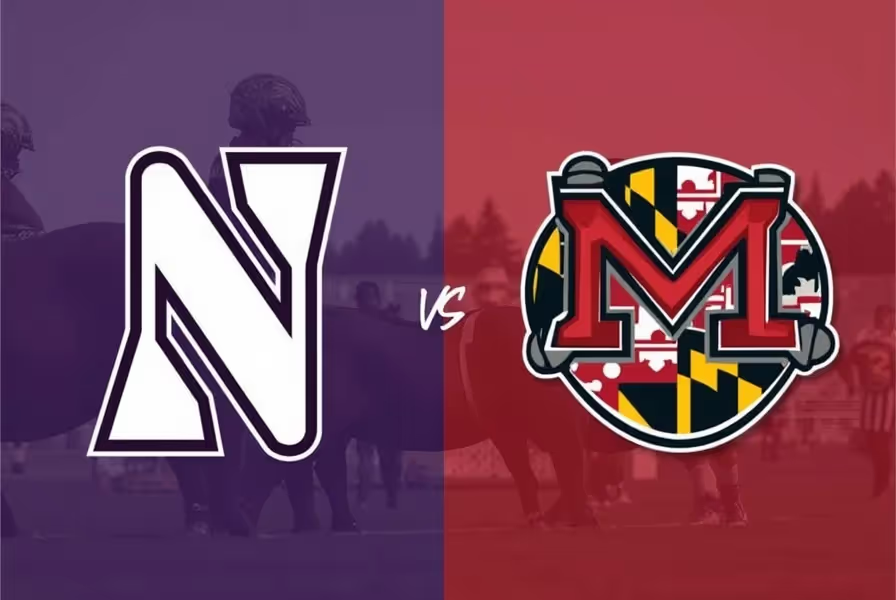Understanding Financial Aid for Certificate Programs
Many adults, recent graduates, and career changers wonder if financial aid through FAFSA can help fund their career certification goals. With the rising demand for job-specific skills, certificate programs are more popular than ever. Before you apply, it’s important to know how federal aid works for non-degree options like certificates and short-term occupational programs.
FAFSA and Federal Student Aid: Key Facts
The Free Application for Federal Student Aid (FAFSA) is the starting point to access U.S. federal financial aid. Most students use FAFSA to apply for grants, work-study, and loans. If you are considering a certificate program, you may ask: Does FAFSA cover certificate programs? The simple answer: Sometimes, depending on several important factors.
- Not all certificate programs are eligible for federal aid.
- The school and the specific program must meet federal requirements.
- There are differences between undergraduate and graduate certificate aid eligibility.
- States and colleges may offer additional options outside federal aid.
Which Certificate Programs Are Eligible for Federal Aid?
Federal student aid through FAFSA is available only for certificate programs that meet specific criteria. Here is what you need to check:
- The program must be offered by a school approved for Title IV federal student aid.
- The certificate course must meet minimum length and curriculum requirements.
- The program must lead to a certificate recognized by a governmental agency or professional board.
- Program types include undergraduate, post-baccalaureate, and graduate certificates, depending on your previous education level.
Check program details before applying. Some beauty schools, technical colleges, and even some online programs may qualify. However, most short-term or non-credit certificate courses do not qualify for federal student aid.
Types of Federal Student Aid for Certificate Students
If your certificate program is eligible, several types of aid are possible:
- Pell Grants: Usually for low-income undergraduate students, including those seeking eligible certificates.
- Federal Supplemental Educational Opportunity Grants (FSEOG): Available at certain schools for students with exceptional financial need.
- Direct Subsidized and Unsubsidized Loans: For qualified students attending approved certificate programs.
- Federal Work-Study: Some certificate students can earn money through campus jobs.
Remember, aid amounts may be lower for certificate programs than for degree-seeking students. Grants usually offer “free” money; loans must be paid back.
FAFSA Eligibility Requirements for Certificate Seekers
To qualify for FAFSA financial aid as a certificate student, you must:
- Be a U.S. citizen or eligible non-citizen.
- Hold a high school diploma, GED, or state-approved equivalent.
- Enroll in an approved eligible certificate program at a participating institution.
- Maintain satisfactory academic progress per your school’s policy.
- Not be in default on existing federal student loans or owe repayments on federal grants.
How to Find Certificate Programs that Accept FAFSA
Follow these steps to identify financial-aid-eligible certificate programs:
- Research FAFSA-approved schools: Use the U.S. Department of Education’s database to verify.
- Ask the school’s financial aid office: Request details about approved certificate options.
- Check program duration: Eligible programs are at least 600 “clock hours” (about 15 weeks) for most Pell Grants.
- Review the course catalog: Look for mentions of “financial-aid-eligible,” “Title IV,” or “FAFSA-eligible” programs.
- Confirm with an advisor: They can guide you to programs that meet aid requirements.
Other Financial Aid and Alternative Funding for Certificates
If your program does not qualify for FAFSA aid, there are other options:
- State and local grants: Some states offer their own financial aid for certificate seekers.
- Scholarships: Industry organizations and colleges may offer scholarships for trades, healthcare, IT, and more.
- Employer tuition assistance: Many employers will help pay for job-related certificates.
- Payment plans: Schools may let you pay tuition in installments.
Popular Fields Where Certificate Students Use FAFSA
Eligible certificate programs exist in high-demand fields. Some examples include:
- Healthcare (Medical Assistant, Pharmacy Technician, Licensed Practical Nurse)
- Information Technology (Network Technician, Cybersecurity Certificate)
- Skilled Trades (HVAC, Welding, Automotive Technology)
- Early Childhood Education
- Business and Office Administration
These programs typically lead straight to employment or advancement — a big reason students seek FAFSA funds for career certificates.
Frequently Asked Questions About FAFSA for Certificate Programs
Does FAFSA pay for online certificate programs?
FAFSA can pay for online certificate programs, but only if the program and institution are accredited and authorized to receive federal student aid. Many online schools are eligible, but always check with the financial aid office before enrolling.
Do short-term certificate programs qualify for federal student aid?
Some short-term programs qualify if they meet minimum federal requirements, usually at least 600 clock hours over 15 weeks. Extremely short courses and bootcamps often do not qualify for FAFSA aid.
Can I get a Pell Grant for a certificate program?
Yes, if you meet general eligibility and your certificate program is offered through a Title IV-eligible school and meets duration requirements. Pell Grants are common for many technical and career certificate programs.
Does FAFSA cover graduate certificates?
Some graduate certificate programs are eligible for federal student loans, but not for Pell Grants. Always check with the school’s financial aid office about specific graduate certificate eligibility.
Will FAFSA cover non-credit certificate courses?
No, non-credit certificate courses are not covered by federal financial aid. Only credit-bearing certificate programs at approved institutions can qualify for aid through FAFSA.
Steps to Take if You Want Financial Aid for a Certificate Program
- Research schools with FAFSA-approved certificate programs in your field.
- Contact admissions and financial aid advisors for detailed program eligibility.
- File your FAFSA as early as possible each year, listing your chosen school and program.
- Gather tax documents and identification needed for your FAFSA application.
- Explore state grants, workforce scholarships, and payment plans too.
Certificate programs offer a practical path to new careers or advancement. Federal aid is possible if your program and school are properly approved. Always research, ask questions, and use every financial resource available to reach your goals.





.avif)





.svg)



